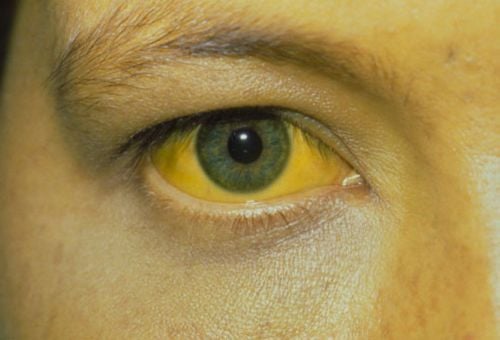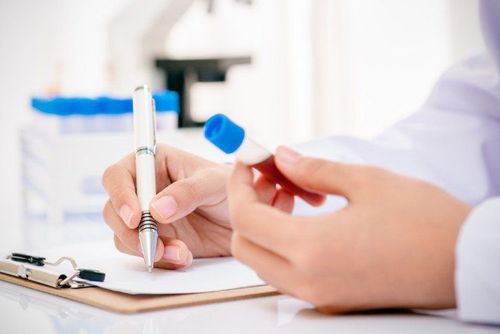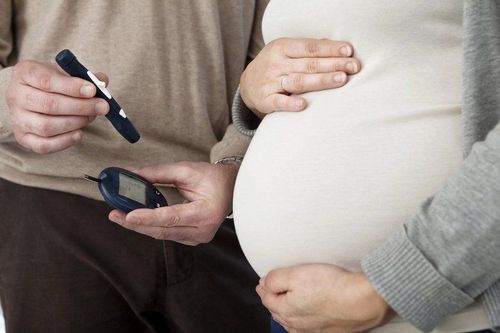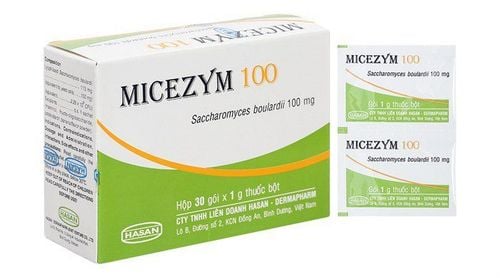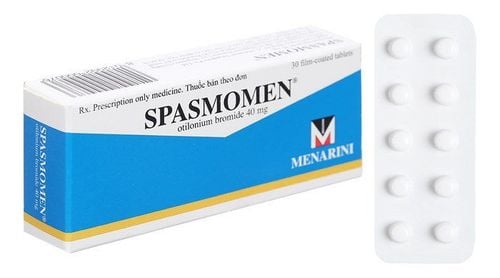This is an automatically translated article.
Shigella bacteria are the causative agents of gastroenteritis and bacillary dysentery in humans. If not detected and treated early, the disease can lead to complications such as dehydration, electrolyte imbalance, uremia, arthritis, dermatitis, kidney failure,... even death.1. What is Shigella Shiga?
Shigella is a Gram-negative, shellless, hairless, motile and non-spore forming bacillus. This bacterium can cause gastroenteritis and bacillary dysentery in humans. There are four distinct groups of Shigella: Shigella dysenteriae, Shigella flexneri, Shigella boydii and Shigella sonnei.
Shigella bacillus can survive in fresh water, raw vegetables, food for 7-10 days at room temperature. If in contaminated clothing, in soil, Shigella bacteria can survive up to 6-7 weeks. However, it can be quickly destroyed in boiling water, sunlight or common disinfectants.
In an infected person, Shigella bacteria are excreted in the feces. Shigella infection is usually caused by: Drinking water containing Shigella bacteria, eating food cooked with contaminated water or coming into direct contact with an infected person. Anyone is at risk for Shigella infection. However, the infection is more common in children under 3 years of age.
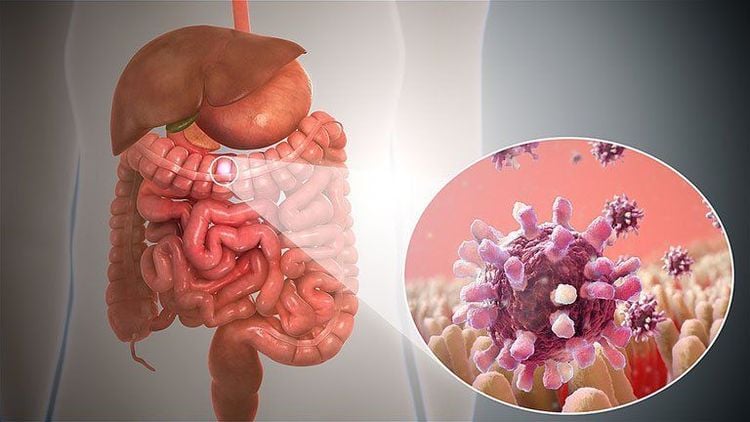
Vi khuẩn Shigella là nguyên nhân gây viêm dạ dày ruột
2. Shigella bacteria cause what disease?
Shigella bacteria cause gastroenteritis and bacillary dysentery. In particular, gastroenteritis is an intestinal infection, which can appear from a mild disturbance in the stomach in 1-2 days with manifestations such as mild diarrhea or severe diarrhea, vomiting for several days. If diarrhea is accompanied by blood and mucus, it is called dysentery. Specific characteristics of these pathologies are as follows:
2.1 Gastroenteritis due to Shigella infection
Shigella gastroenteritis is an inflammation of the digestive tract lining caused by Shigella bacteria. Typical symptoms of the disease include: Diarrhea, abdominal pain, vomiting, fever, chills and body aches. Symptoms of dehydration in children: Urinating less, sleeping more, crying more than usual, thirsting more, dry lips, sunken eyes, sunken fontanelle, crying without tears, wrinkled skin, cold and pale hands and feet. Symptoms of dehydration in adults: Fatigue, dizziness, lightheadedness, muscle aches, headache, sunken eyes, little urine output, dry mouth, weakness and irritability. Symptoms of severe dehydration in adults include weakness, confusion, heart palpitations, very little urination, and coma.
When children and adults are severely dehydrated, seek immediate medical attention. Patients with gastroenteritis caused by Shigella bacteria can be hospitalized or simply observed for a few hours. If detected early and treated promptly, the disease is usually not dangerous. In cases of severe dehydration, your doctor may prescribe additional intravenous fluids.
2.2 Bacillary dysentery caused by Shigella infection
Bacillary dysentery is a gastrointestinal infection caused by Shigella bacillus. Shigella causes disease based on the mechanism of invasion into intestinal mucosal epithelial cells and multiply in large numbers in the intestine. In Vietnam, the most common Shigella causing bacilli are Shigella sonnei and Shigella flexneri. The disease is transmitted through the gastrointestinal tract and easily develops into an epidemic.
Symptoms of the disease in full-blown phase: Includes 2 main syndromes:
Dysentery syndrome: Bloody mucus stools, frequent bowel movements, the amount of stool later becomes less and less. Severe cases may have bowel movements 20-40 times/day, straining and increasing, rectal pain, intermittent cramping pain along the colonic frame before defecation; Infection syndrome: High fever 39-40 degrees Celsius, chills, body aches, loss of appetite, fatigue, nausea and vomiting. Young children may have convulsions due to high fever or neurotoxicity. Fever usually subsides after a few days, body collapses quickly, fatigue, dry lips, yellow-brown tongue. Usually after 1-2 weeks without treatment, the disease also improves naturally. However, dysentery can progress differently from case to case. Specifically, in mild form, the patient has mild diarrhea or only dull abdominal pain, transient loose stools and then gradually disappears. In severe and acute form, the patient has high fever, chills, bloody diarrhea, electrolyte disturbances, circulatory failure and possibly death. In the chronic form, the patient has long-lasting bloody mucus loss, loss of protein, prolonged electrolyte disturbance and exhaustion. Children 1 - 4 years old often have acute illness with very high fever with convulsions, lethargy, headache, stiff neck. In some cases, children can die from hemolytic syndrome, uremia or endotoxin shock. Therefore, when the patient has the above symptoms, it is necessary to immediately seek medical attention for timely treatment.
3. Complications after Shigella infection
Dehydration and electrolyte imbalance in the body: It is the most common complication when the amount of water and electrolytes lost when the patient has diarrhea or vomiting, cannot be compensated by adding water to the body. . Severe dehydration can lead to a drop in blood pressure, which reduces blood flow to the organs of the body. If dehydration is not treated, the patient can develop kidney failure, even death; Complications of Reactions: Sometimes, certain organs in the body can react to an infection with Shigella bacteria in the intestinal tract, causing symptoms such as dermatitis, arthritis, conjunctivitis, or uveitis. dig eyes; Hemolytic-uremic syndrome: A serious condition with symptoms of anemia, thrombocytopenia, and kidney failure. This condition can be caused by toxins produced by certain types of Shigella bacteria. If complications are severe, they can cause severe anemia, blood clotting disorders, leading to bleeding under the skin, mucous membranes and kidney failure. This syndrome is common in children and if detected and treated early, the patient will recover well; Lactose Intolerance: May occur for a period of time after Shigella gastroenteritis. This is secondary lactose intolerance, which makes it difficult for the body to digest the sugars in milk. Lactose intolerance leads to abdominal pain, bloating, and diarrhea after drinking milk. This condition is more common in children and will improve as the infection clears and the lining of the intestine heals; Intestinal complications due to severe dysentery: Irritable bowel syndrome, intestinal bleeding, intestinal necrosis, intestinal perforation, intussusception, peritonitis, rectal prolapse, toxin-induced dilation of the colon; Superinfection: Urinary tract infection, pneumonia, cholecystitis, intestinal candidiasis, bacteremia due to enteric bacilli; Systemic complications: Convulsions, cardiovascular collapse, arteriovenous thrombosis, neurotoxicity; Reduced effectiveness of some medications: After a Shigella infection leads to gastroenteritis, some medications that the patient takes such as epilepsy, diabetes, and birth control methods may not work. desired effect. This is because patients often have diarrhea and vomiting, which can eliminate some drugs before they are absorbed into the body; Sequelae: Chronic colitis post-bacillus dysentery.
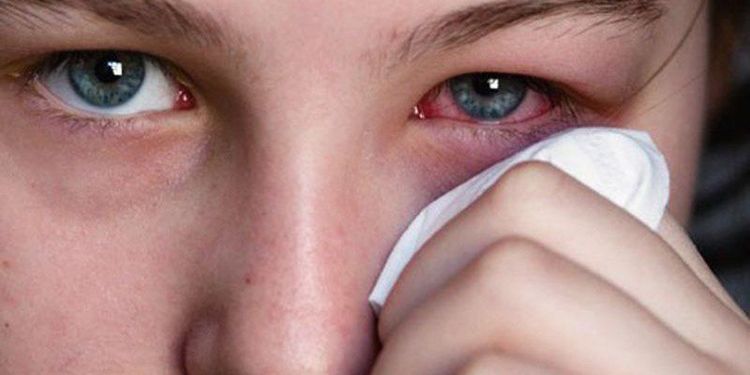
Nhiễm khuẩn Shigella có thể biến chứng gây viêm kết mạc mắt
4. Treatment of Shigella Infections
4.1 Treatment of Shigella in Children
Use antibiotics: Treat gastroenteritis, help reduce the risk of Shigella infection and shorten the recovery time after Shigella infection. The most commonly used antibiotic is ciprofloxacin. However, your doctor may also prescribe a different antibiotic for each specific case. Therefore, parents need to be consulted by a doctor before buying medicine for their children; Fluids to prevent dehydration: Encourage children to drink plenty of water, milk or solid foods, but avoid fruit juices and carbonated drinks as they can make diarrhea symptoms worse. In addition, children can also use electrolyte solutions as prescribed by the doctor; Hospitalization for dehydration treatment: The child is prescribed fluid resuscitation measures such as: Using a nasogastric tube or intravenous fluids; Let the child eat normally, at first with liquid, then gradually thicken; Use some other medicines: You can give children paracetamol or ibuprofen to reduce fever and abdominal pain as prescribed by the doctor. Parents should note that antidiarrheal drugs should not be given to children under 12 years of age because they can cause many serious complications for children. Probiotics are also not recommended for children with gastroenteritis or for children with food poisoning caused by Shigella bacteria or any other cause.
4.2 Treatment of Shigella infections in adults
Use of antibiotics: Adults are often prescribed the antibiotic ciprofloxacin to treat Shigella infections. However, the doctor may prescribe a different drug depending on the specific patient; Drink plenty of water: To prevent the risk of dehydration or to treat dehydration. Normally, patients should drink at least 200ml after each episode of diarrhea. For patients with vomiting, it is recommended to wait 5-10 minutes and then continue to drink water at a slower rate, ensuring enough water as advised by the doctor. Sources of water put into the body include: Purified water, juices and soups; Drinks with a lot of sugar should not be used as they can make diarrhea worse. Electrolyte solution is indicated for use in people who are sick, over 60 years old or have underlying health problems; Maintain a normal diet, eat light meals, avoid fatty, hot or too thick foods; Use of other medicines: Paracetamol or ibuprofen can be used to reduce fever, headache and stomach cramps. Patients with Shigella infection or who have bloody or mucoid stools should not take anti-diarrheal medications. *Note: In case a child or an adult is being treated for a Shigella infection and does not see improvement within 48 hours or the illness worsens, the patient should urgently see a doctor. When there are signs such as: Severe vomiting, dehydration, persistent high fever, abdominal bloating, bloody stools, the patient needs immediate emergency care.
5. Measures to prevent infection with Shigella bacteria
Wash hands thoroughly after using the toilet with soap, dry hands properly after washing. With children using diapers, parents need to wash their hands carefully after changing diapers for children and wash their hands before cooking and eating. If your child uses the potty, wear gloves when cleaning the potty, emptying the waste into the toilet, then washing the potty with soap and hot water and drying it; Do not share personal items with someone who is infected with Shigella; People with Shigella should not cook for others; Wash the patient's clothes and blankets separately; Every day, the toilet should be cleaned with hot water and detergent, especially the handle, shower, doorknob,...; Eat cooked, drink boiling; Persons infected with Shigella should stay away from work and school until 48 hours after the last episode of diarrhea or vomiting, and avoid contact with other people during this time; People infected with Shigella, if working in food processing, should immediately stop working and notify their manager until the disease is completely treated to ensure no spread; People infected with Shigella, if they have been in contact with the elderly, children or debilitated people, should notify the susceptible subjects to actively monitor their health; When traveling to an area with poor sanitation, avoid drinking tap water, eating ice cream, ice cubes, shellfish, eggs, salads, undercooked meat, peeled fruit, etc. Shigella bacteria are usually transmitted through drinking contaminated water or eating contaminated food. If treated early, patients infected with Shigella bacteria can recover quickly within 1-2 weeks. However, with severe forms of the disease, if not detected early and treated promptly, the disease can cause death due to complications. Therefore, when there are warning signs of gastroenteritis or dysentery caused by Shigella bacilli, the family should soon take the patient to the doctor for active and effective treatment.
Vinmec International General Hospital is one of the hospitals that not only ensures professional quality with a team of leading medical doctors, modern equipment and technology, but also stands out for its examination and consultation services. comprehensive and professional medical consultation and treatment; civilized, polite, safe and sterile medical examination and treatment space. Customers when choosing to perform tests here can be completely assured of the accuracy of test results.
Please dial HOTLINE for more information or register for an appointment HERE. Download MyVinmec app to make appointments faster and to manage your bookings easily.




